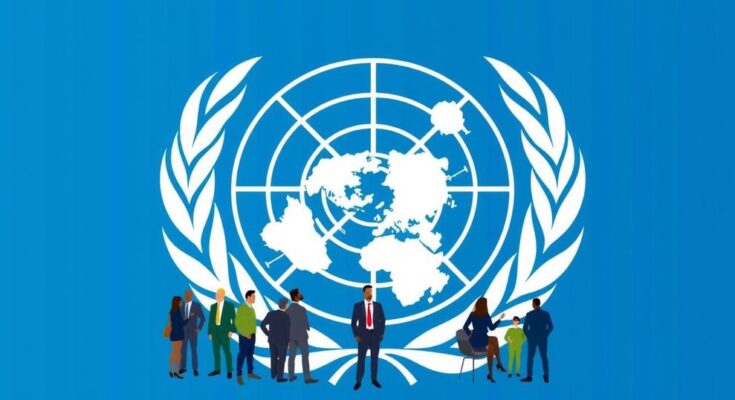Wealthy nations raised their climate finance pledge to $300 billion at COP29 negotiations in Baku, amid a backdrop of skepticism from developing nations, which initially rejected an earlier proposal of $250 billion. Key figures such as British Energy Secretary Ed Miliband and US climate envoy John Podesta highlight ongoing efforts for compromise, while activists and officials stress the importance of holding affluent states accountable for financial commitments.
Wealthy nations have increased their climate finance offer to $300 billion per year by 2035 during discussions at COP29, which has extended into an extra day in Baku, Azerbaijan. The negotiations, which took place overnight in a sports stadium, sought compromise amidst a backdrop of skepticism regarding the outcomes of the summit. Initially, developing countries rejected a $250 billion offer due to their pressing needs arising from climactic adversities.
In light of this backdrop, key players such as the United States, the European Union, the United Kingdom, and Japan convened to negotiate the increased funding. British Energy Secretary Ed Miliband emphasized the importance of securing a positive agreement. However, challenges remain, as EU Climate Commissioner Wopke Hoekstra warned that the negotiations were still precarious.
Ali Mohamed, chair of the African Group of Negotiators, stated that without sufficient financial support, the talks could collapse, underscoring the sentiment that “no deal is better than a bad deal.” Conversely, South African Environment Minister Dion George expressed skepticism about ambitious proposals, indicating their potential futility if they do not translate into tangible commitments.
The revised $300 billion offer, which includes stipulations tied to other elements of the broader climate framework, has sparked a mix of hope and caution among representatives from developing nations. A coalition of over 300 activist organizations has criticized wealthy nations for not fulfilling their obligations, urging developing countries to remain steadfast in their demands.
Further complicating the negotiations, oil-producing nations such as Saudi Arabia have opposed stringent commitments to reduce fossil fuel reliance, citing economic implications. The proposed draft also envisions an overall climate financing goal of $1.3 trillion annually, relying heavily on private sector contributions. Given the push for support from newly wealthy nations like China, the outcome of COP29 remains uncertain, with calls for increased financial accountability still echoing throughout the conference.
The climate finance negotiations at COP29 in Baku represent the ongoing struggle between wealthy nations and developing countries regarding financial commitments to address climate change impacts. Developing nations, facing escalating climate disasters, demand significant financial assistance to mitigate their challenges. The recent history of climate negotiation outcomes has revealed a persistent gap between pledged funds and actual contributions from wealthier nations. As the world grapples with unprecedented climate crises, the urgency for transparent and accountable financial frameworks becomes increasingly critical in achieving meaningful progress in climate action.
The developments at COP29 illustrate the complexities of international negotiations on climate finance, particularly the need for wealthier nations to meet the funding demands of developing countries facing severe climate challenges. While the increased commitment to $300 billion marks a step forward, significant hurdles remain, including resistance from oil-rich countries and the necessity to ensure that funds translate into effective solutions. The conference approach will ultimately set the tone for future international climate finance interactions.
Original Source: www.wionews.com




